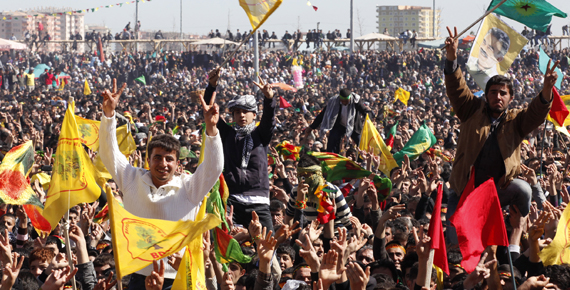Turkey’s Constitutional Court (AYM) has found no violation of rights in authorities’ move to not allow a Kurdish person to name their child “Ciwan” and not issue an identity card because the name has the letter “w” in it, Mezopotamya News Agency reported on April 25.
The letters “X,” “W,” and “Q,” which are not found in the 29-letter Turkish alphabet, are found in the 32-letter Kurdish alphabet.
Abdullah Yılmaz gave the name of “Ciwan,” which means “young” in Kurdish, to his child born in 2014. However, the western province of İzmir’s Çiğli District Civil Registry refused to issue an identity card on the grounds that the letter “w” was not in compliance with the “Law on the Acceptance and Application of Turkish Letters.”
The registry filed a report for the name to be changed from “Ciwan” to “Civan.” The Prosecutor’s Office filed a lawsuit in accordance with the registry’s report. The court decided that the name “Ciwan” was not in accordance with the “Law on the Acceptance and Application of Turkish Letters.” The court ruled that the letter “w” cannot be used in official business and administration and decided that the name be registered as “Civan.”
Yılmaz appealed the local court’s decision to the Court of Cassation, the country’s highest court of appeals, which in 2017 ruled that the local court’s decision was in accordance with the law.
This time, Yılmaz took his case to the Constitutional Court, pointing out that the “right to respect for private and family life” and the “principle of equality of the Constitution” were violated.
Citing the articles related to the official language in the law and international law, the top court said that there was no information about a serious obstacle to the use of the name “Civan” in the Kurdish culture.
The Constitutional Court concluded that the local court’s implementation was in accordance with the requirements of the democratic social order, considering that the public authorities did not arbitrarily use their discretion and took measures within the framework of the use of the official language.
Claiming that the applicant was not prevented from naming his child in his own culture, the Constitutional Court further said that the applicant was not discriminated on the basis that he is Kurdish. The court took the decision unanimously.
As the letters X, Q, W, Î, Û, Ê which feature in the Kurdish alphabet are forbidden in Turkey, many Kurdish people in Turkey are given a second Turkish name in addition to Kurdish names.
In 2013, as part of a series of reforms, the Turkish government announced that it would lift bans on the Kurdish alphabet and Kurdish names would be allowed officially. Yet nine years later, the Kurdish alphabet remains illegal, and Kurds still cannot give Kurdish names to their children.
Source: Duvar



